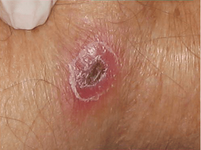Silver Supporter
- Messages
- 10,175
- Reactions
- 17,510
I have been prescribed tetracycline several times. If it ends in "cillin" the chances are I'll blow up like a puffer fish and my blood pressure will go off the charts. Pounding head, red skin, instant fever etc. Amoxicillin is about the only one I can handle without issue. Tetracycline makes my ears ring but thats about it. Penicillin puts me in the grave so I'm avoiding that one..
Last time I took cipro before I had a few teeth removed for implants I vomited blood for 2 days.
Americillin is often used in chicken feed . Took me years to figure out what was happening to me after they started using it in feed in the mid 90's. Felt like I was on fire after eating chicken 80% of the time. They have curtailled its use for the most part but its still used in Turkey raising. I have been hospitalized for anaphylaxis after consuming turkey because of trace Americillin.
Last time I took cipro before I had a few teeth removed for implants I vomited blood for 2 days.
Americillin is often used in chicken feed . Took me years to figure out what was happening to me after they started using it in feed in the mid 90's. Felt like I was on fire after eating chicken 80% of the time. They have curtailled its use for the most part but its still used in Turkey raising. I have been hospitalized for anaphylaxis after consuming turkey because of trace Americillin.
Last Edited:












